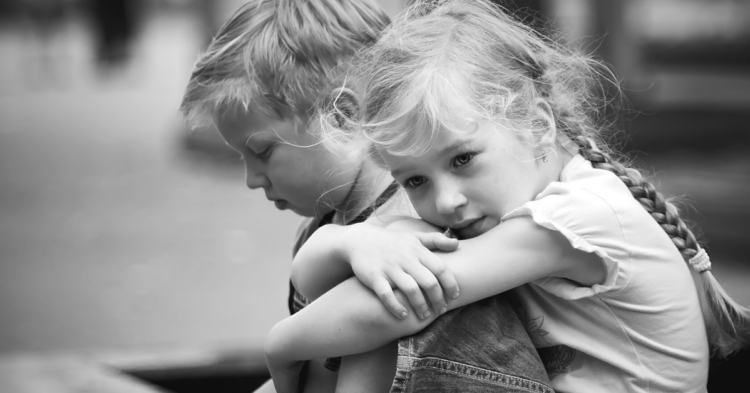There’s generally a good deal of wiggle room when it comes to parenting styles.
Whether some parents choose to adhere to a strict schedule when it comes to naps or snacks, or if they’d rather their kids simply snacked when hungry or slept when tired, not every family will make the same decision because there’s no one right choice.
The same can be said of correcting bad behaviors in kids — but when it comes to using corporal punishment, or spanking, science is increasingly showing that it might be time to find alternate methods.
What might seem like a tiny smack from an adult can have serious implications for a child’s development.

According to a new study out of Harvard, spanking can in fact resemble more serious forms of abuse when it comes to a child’s brain development.
That altered development can have serious consequences for children in the years to come.
In their study, the researchers approached corporal punishment from a slightly different angle than previous studies have.

“We know that children whose families use corporal punishment are more likely to develop anxiety, depression, behavior problems, and other mental health problems, but many people don’t think about spanking as a form of violence,” senior researcher Katie A. McLaughlin said in a press release.
“In this study, we wanted to examine whether there was an impact of spanking at a neurobiological level, in terms of how the brain is developing.”
And yes, the impact of spanking could be seen at a neurological level.
For the study, the research team studied data from 147 kids around the ages of 10 and 11, 40 of whom had been spanked, and the rest who had not. Each child was placed in an MRI machine and shown a series of photos of actors’ faces demonstrating different emotions.
In the children who had been spanked, brain activity spiked when shown fearful faces, and it did so in a way that had no difference from children who had experienced more serious abuse.
As McLaughlin said, “While we might not conceptualize corporal punishment to be a form of violence, in terms of how a child’s brain responds, it’s not all that different than abuse. It’s more a difference of degree than of type.”
The implications are quite far reaching.

Spanking remains a perfectly legal and often socially acceptable practice in at least some settings in more than 130 countries, according to the Global Initiative To End All Corporal Punishment .
In the United States, a 2014 survey found that while rates of spanking had decreased greatly, 49% of parents reported having spanked their kids in the previous year.
While the findings of this study fall in line with previous studies that show spanking can be detrimental, the researchers hope that it can further move the needle away from spanking.
“[The] important message is that corporal punishment is a risk that can increase potential problems for children’s development, and following a precautionary principle, parents and policymakers should work toward trying to reduce its prevalence,” said Jorge Cuartas, a Ph.D. student who worked on the study.
“We’re hopeful that this finding may encourage families not to use this strategy, and that it may open people’s eyes to the potential negative consequences of corporal punishment in ways they haven’t thought of before,” added McLaughlin.
The research was published in Child Development .
h/t: The Harvard Gazette

















































